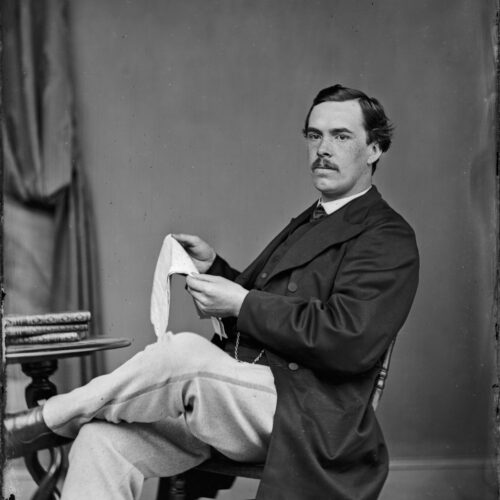

I believe in the absolute equality of the sexes, and I think they [women] should be in the enjoyment of equal privileges in political matters.
John Ballance, 1890
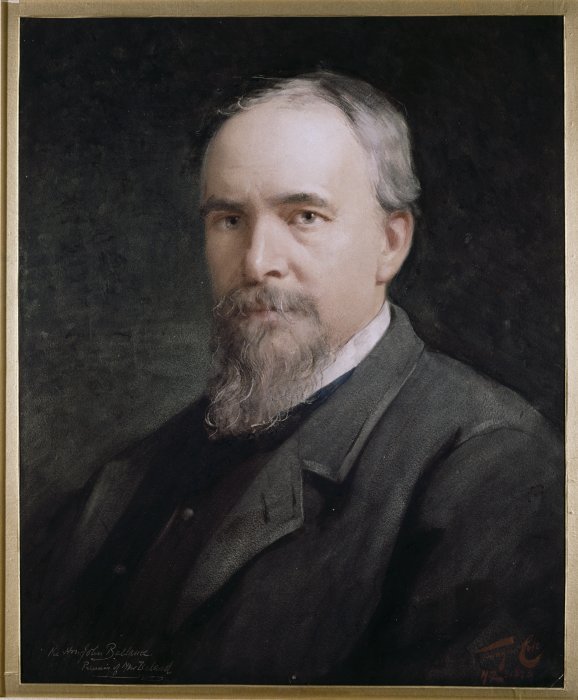
John Ballance was an Irish journalist, politician, and freethinker, who became the 14th Prime Minister of New Zealand. Influenced by the sectarianism he witnessed in his native country, Ballance was a devoted secularist throughout his life and career. He was also co-founder of the Wanganui Freethought Association in 1883, and producer of the monthly Freethought Review (1883–85). Along with his progressive and politically engaged wife, Ellen, Ballance was a longtime supporter of giving women the vote. In 1890 he declared: ‘I believe in the absolute equality of the sexes, and I think they should be in the enjoyment of equal privileges in political matters.’ In 1893, New Zealand became the first self-governing nation in the world where women had the right to vote in parliamentary elections.
Motivated by humanist values of fairness, rationality, and compassion, Ballance was remembered by the Dictionary of New Zealand Biography as ‘kindly, courteous and considerate’—’a man of honesty and integrity’, notable for ‘bringing people with him through reasoned argument and the obvious sincerity of his words’.
The biography reprinted below was first published in October 2009 as part of the Dictionary of Irish Biography. It is reproduced here under the terms of the Creative Commons Attribution Non Commercial 4.0 International license.
Contributed by Lunney, Linde
Ballance, John (1839–93), New Zealand politician, was born 27 March 1839, eldest among ten children surviving to adulthood of Samuel Ballance and Mary Ballance (née McNeice) of Ballypitmave near Glenavy, Co. Antrim; she was from a quaker background, while the Ballances were a prosperous Church of Ireland farming family with strong traditions of support for the Orange Order – John’s grandfather (also John Ballance) had been a Yeoman, and was wounded in the 1798 rebellion. The younger John Ballance attended the local national school, then a school in Belfast; and, though he could have taken over the farm, went to work in a hardware firm in Belfast. He moved to Birmingham, where he profited by educational opportunities in evening classes, and married (1863) Fanny Taylor.
He was unsuccessful in his business ventures, and in 1866 they emigrated to New Zealand. They settled in Wanganui, North Island, but had initially no better fortune in sheepfarming and a jewellery business, and the hope of improved health for Fanny was disappointed: she died in 1868. In 1867 Ballance founded and edited a newspaper, the Wanganui Herald, and in 1869 published an attack on a government order introducing conscription in the second Maori war. Although he was briefly under arrest for refusing to join the local militia, he fought bravely in a cavalry unit that he himself had founded. He was a candidate in the elections of 1873 for the house of representatives, but withdrew from the contest to facilitate Sir Harry Atkinson. When he was elected (1875) he at first supported Atkinson’s conservative government. He joined the liberal party of Sir George Grey (1877), and in 1878 was appointed colonial treasurer in Grey’s government. He resigned in June 1879, angered by what he felt were Grey’s arbitrary decisions, but was reelected for Wanganui in the election that year caused by the fall of Grey’s ministry. In 1881 he lost his seat by four votes, but was reelected with a large majority in 1884, and became minister for lands and native affairs in the Stout–Vogel ministry (1884–7); he felt that conciliatory methods would produce better relations with the Maoris, and sent police rather than the army to administer European rule in Maori areas. He also held the defence portfolio, fortified New Zealand’s ports, and set up a permanent militia. He was reelected (1887, 1890) and became leader of the opposition in 1889. In January 1891, after a hard-fought election, Ballance replaced Atkinson, his former colleague, as prime minister.
He strongly opposed those who sought to establish in New Zealand the landed interest, which had helped to cause agrarian problems in Ireland, and as a secularist he also opposed religious intervention in education and political life. He introduced a residential franchise – the first in any colony – which resulted in almost universal male franchise, and in 1893 a bill to allow adult women to vote.
Throughout his career he was associated with land and tax reforms: he engineered the introduction of income tax and a tax on unimproved land to replace a property tax; he set up trusteeships to ensure that Maoris benefited from the lands that had been reserved for them, and encouraged the homesteading of up to a thousand families on government lands. He strongly opposed those who sought to establish in New Zealand the landed interest, which had helped to cause agrarian problems in Ireland, and as a secularist he also opposed religious intervention in education and political life. He introduced a residential franchise – the first in any colony – which resulted in almost universal male franchise, and in 1893 a bill to allow adult women to vote. To ensure that the colony’s governor did not overstep his constitutional position, Ballance renegotiated certain aspects of New Zealand’s official relationship with the colonial office in London. His radical and innovative policies, through which he hoped to establish in New Zealand the reformed society that had been advocated by John Stuart Mill, Cobden, and Bright, were initially blocked by the conservative upper house of parliament, and it was only when the governor appointed twelve new members to sit there that the measures were passed.
He was nicknamed ‘the Rainmaker’ for his reputed ability to bring about prosperity, and earned wide and lasting respect as a reforming and enlightened politician.
Ballance’s health caused many problems during the two years of his premiership, and on 27 April 1893 he died; he was buried in Wanganui. He was nicknamed ‘the Rainmaker’ for his reputed ability to bring about prosperity, and earned wide and lasting respect as a reforming and enlightened politician. He refused a knighthood; a statue was erected in Wellington, and his birthplace in Co. Antrim was restored by the Ulster New Zealand Trust and opened to the public. Ballance married for the second time in May 1870; his wife, Ellen Anderson (d. 1930), daughter of an English army officer, had been born in Co. Down. They had two adopted children.
Philip Meynell, The dictionary of Australasian biography (1892); DNB; Richard P. Davis, Irish issues in New Zealand politics 1868–1922 (1974), 9, 93; Hubert W. Coffey and Marjorie J. Morgan, Irish families in Australia and New Zealand, 1788–1983, i (1985); Tim McIvor, ‘John Ballance, New Zealand premier 1891–1893: Irish origins and influences’, Familia, ii, no. 5 (1989), 32–7; Alec Blair, County Antrim characters: portraits from the past, i (1993), 21–3; The Ulster New Zealand Trust, The Ballance house (n.d.)
An Irish pioneer in New Zealand: How women’s rights stance marked John Ballance’s place in political history | The Currency
John Ballance | The Encyclopedia of New Zealand
‘When Ballance went a long way in politics…’ by David Bell

The principles of humanism are positive and exacting commitments. People do not become Humanists merely on rejecting supernatural beliefs. But […]
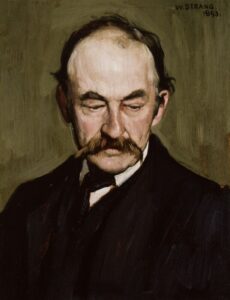
Thomas Hardy was an English novelist and poet, renowned for his apparently bleak outlook, but finely tuned to life and […]
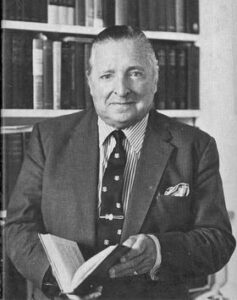
Harford Montgomery Hyde was a Belfast-born barrister, politician, author, and humanist, who championed humane legal reforms and progressive social attitudes. […]
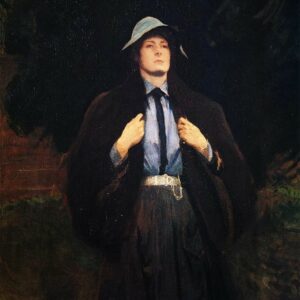
I for one don’t believe in looking regretfully back into the past or forward with illusive hopes into the future, […]